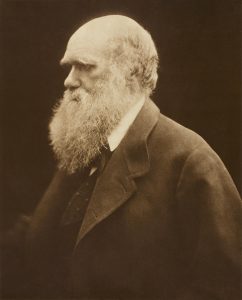What Darwin tells us about the low carbon transition
 I’ve long been fascinated by Charles Darwin. I think it started when I studied in the same place as him, Christ’s College Cambridge, treading the same worn steps and floorboards, and eating in the same wood panelled halls. It was from Christ’s where Darwin made the connections to get his place onboard HMS Beagle upon graduation. I also went on an ecology expedition on graduation where we found four ‘new’ species of butterfly in Ecuador – not actually as hard as it sounds tbf given the incredible levels of biodiversity in that small country, and I didn’t do the tricky ID bit either, and obviously I didn’t end up rewriting all of biology as a result, but hey… We named our youngest after Darwin, partly inspired by the Low Anthem song Oh My God Charlie Darwin.
I’ve long been fascinated by Charles Darwin. I think it started when I studied in the same place as him, Christ’s College Cambridge, treading the same worn steps and floorboards, and eating in the same wood panelled halls. It was from Christ’s where Darwin made the connections to get his place onboard HMS Beagle upon graduation. I also went on an ecology expedition on graduation where we found four ‘new’ species of butterfly in Ecuador – not actually as hard as it sounds tbf given the incredible levels of biodiversity in that small country, and I didn’t do the tricky ID bit either, and obviously I didn’t end up rewriting all of biology as a result, but hey… We named our youngest after Darwin, partly inspired by the Low Anthem song Oh My God Charlie Darwin.
Anyway, here’s what Darwin said about natural selection, which is not quite ‘survival of the fittest’ as often portrayed:
“It’s not the strongest of the species who survives, nor the most intelligent who survives. But the ones most adaptable to change.”
I’ve long said we should not think about “go green, save money” but “go green or go bust.” Why? If you are a high carbon business in a low carbon economy you are headed for extinction. Think of all the valve/tube manufacturers who failed to see how fast the transistor would cannibalise their market. Think of Kodak who actively rejected digital photography and paid the price. Think of all the stores like Woolworths and Zavvi who found themselves trying to flog CDs and DVDs in the downloading/streaming era. None of them adapted to the changes, all of them suffered, most of them fatally.
So how are you going to adapt to thrive in a low carbon economy? Are you adapting to your customers’ Net Zero targets? Will your product/service help them meet those goals? Do you have high carbon assets you need to shed before their value plummets? Are there emerging markets you can exploit?
Adapt or die. It’s that brutal.

